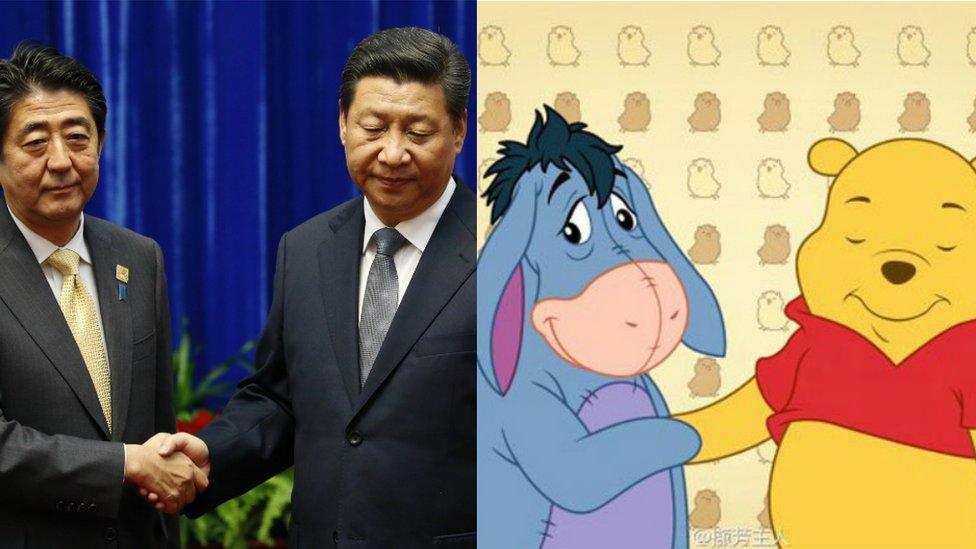PewDiePie: No, the world's biggest YouTuber is not banned in China
- Published
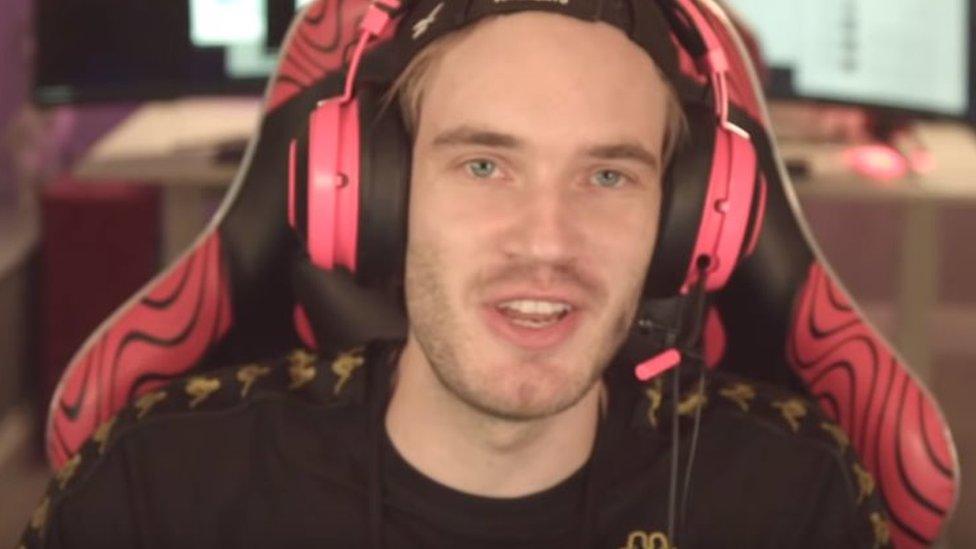
PewDiePie is the most popular YouTuber in the world with more than 100 million subscribers
Has China really banned PewDiePie?
You would be forgiven for thinking so. After all, several major international news websites have written headlines about the world's most popular YouTuber being "wiped" or "banned" from the internet in China.
But there is one tiny problem - it did not happen.
Fanpages for PewDiePie still exist on Chinese social media, and a cursory search for his name on Baidu - China's Google - returns 8.28 million results.
PewDiePie himself originally claimed to have been banned, external in a video on Saturday but he later appeared to make light of the supposed block, suggesting he was not being completely serious.
He joked on Twitter that he had punched a wall in outrage.
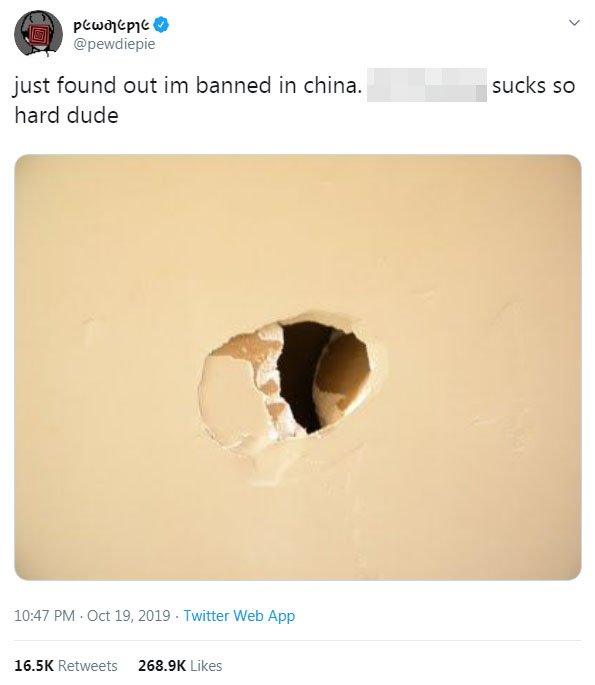
PewDiePie's tongue-in-cheek tweet, with a few foul words blurred out

"Well boys, we did it," he said in Saturday's video, which has been viewed 6.5m times. "I'm banned from China."
He continued: "I spoke about the Hong Kong protests, external, and showed their leader being mocked for looking like Winnie the Pooh."
He added searches for his name now bring up no results on certain forums and video platforms.
But did not mention that searches for him on video sites like iQiyi and Tencent Video still return tens of thousands of results.
Chinese authorities have banned any comparison between President Xi Jinping and Disney character Winnie the Pooh since 2017.
Put simply, the government is extremely sensitive about how the president is regarded and seeks to maintain the perception he is loved and praised by the country's 1.4bn population.
The Pooh comparisons were propelled back into the public consciousness in October 2019 when a South Park episode heavily criticised the Chinese government.
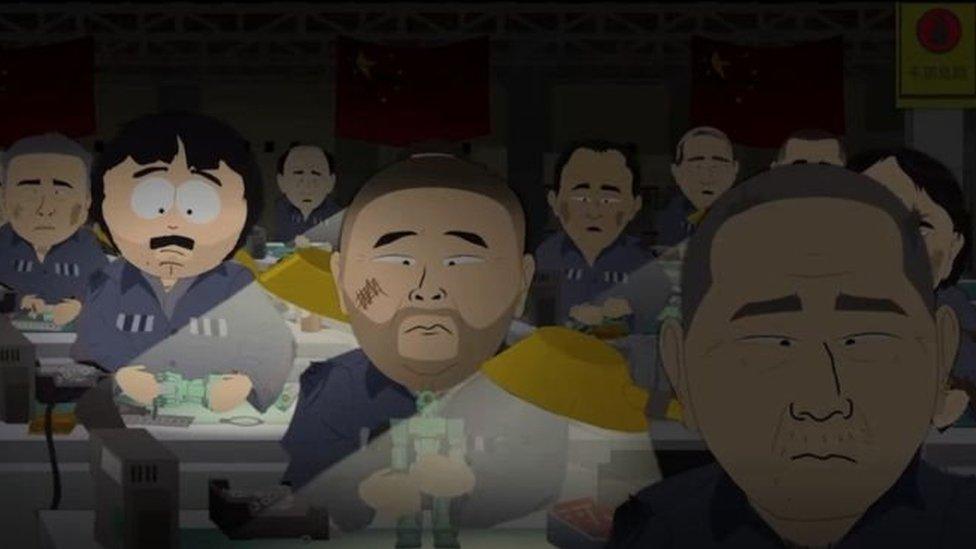
South Park character Randy Marsh (left) later sees a guard shooting a prisoner in the head
The show was subsequently largely made unavailable in China, with any search for it on social media and video websites returning no results.
But this has not happened to PewDiePie: Some content related to the YouTuber has indeed been made inaccessible online, such as a Baidu-run forum about him which has removed messages and even prevented people from posting new comments.
But there is no evidence to suggest this was done on the orders of the government.
In China, the general rule for censorship is: if something is too violent, sexualised, or goes against the government's message, it will be banned from the country.
Several manga and anime (Japanese comics and cartoons) are banned for the first two reasons.
Meanwhile celebrities are usually barred for the third reason. For example, Lady Gaga was reportedly denied a Chinese visa in 2016 over her meeting with the Dalai Lama.
With regards to PewDiePie, the censorship of the forum seems to be Baidu acting out of an abundance of caution.
The government has certainly not demanded that the search engine erase mentions of PewDiePie. A search for his name still returns more than eight million results.
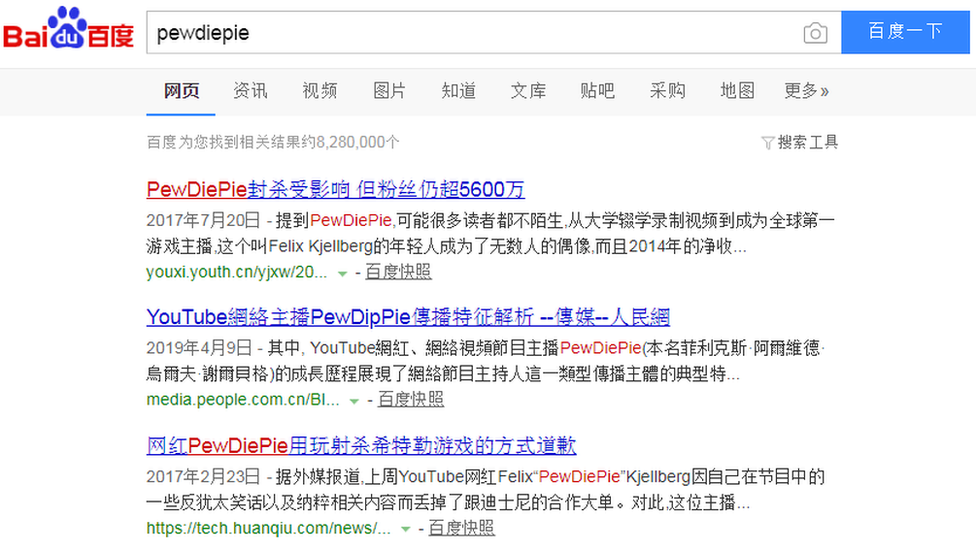
The top three results are about PewDiePie's international audience, his YouTube videos, and one of his apologies
A similar search on China's Twitter-like social media site Weibo produces plenty of results, including videos translated by Chinese fans and fanpages.
So what does a ban backed by the Chinese government look like?
Well, consider this search on Baidu for President Xi's daughter, Xi Mingze.
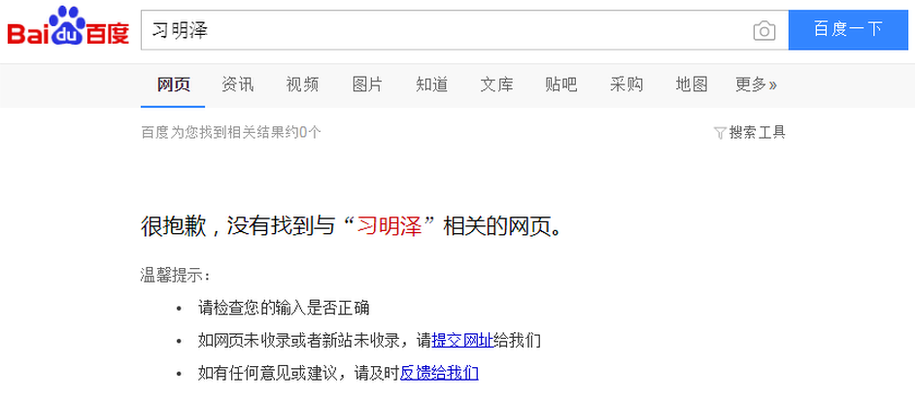
"Sorry, there are no results for Xi Mingze"
This is what a blanket ban looks like in China: an internet search for the president's daughter produces zero results, as though she does not exist.
One thing to remember is PewDiePie found success on a social media platform which cannot be accessed in China.
YouTube has been unavailable since 2009, so celebrities who gained mass popularity there are not necessarily similarly popular in China. And of course the country has its own massive established base of online celebrities that draws from a huge pool of more than 400 million live-streamers.
So while it is conceivable his comments have attracted censors' attention, PewDiePie simply has not been banned from the internet in China.
He might just not be popular enough for the censors to bother with.
- Published8 October 2019

- Published30 July 2019
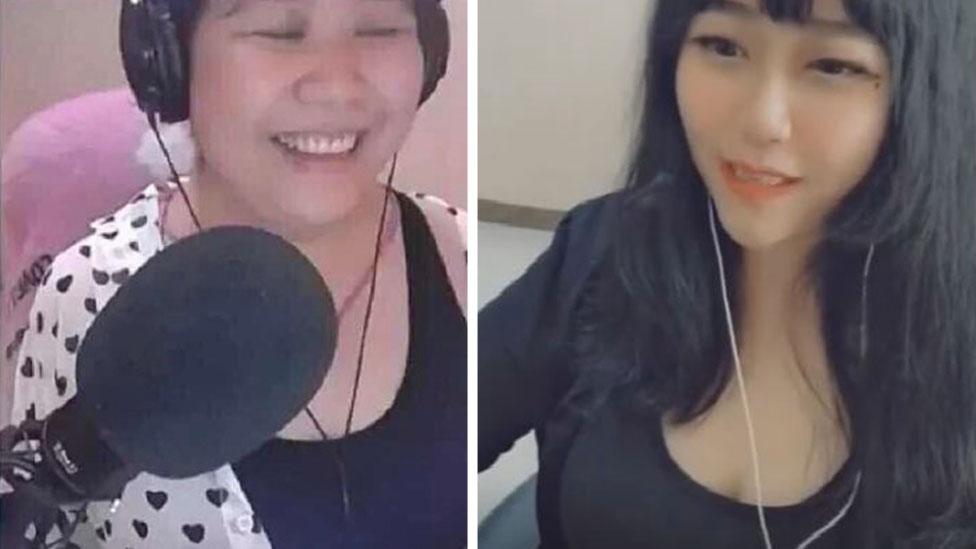
- Published17 July 2017
